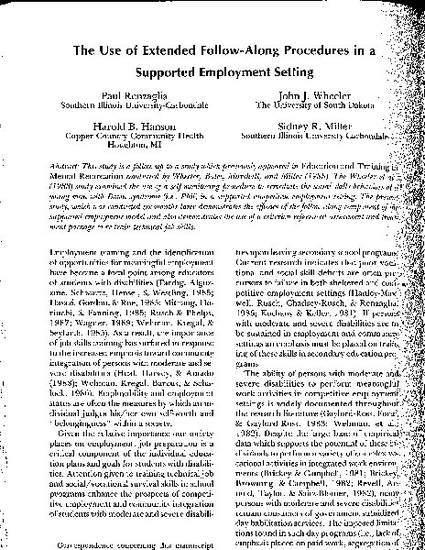
Article
The Use of Extended Follow-Along Procedures in a Supported Employment Setting
Education and Training in Mental Retardation
(1991)
Abstract
This study is a follow-up to a study which previously appeared in Education and Training in Mental Retardation conducted by Wheeler, Bates, Marshall, and Miller (1988). The Wheeler et al., (1988) study examined the use of a self-monitoring procedure to remediate the social skills behaviors of a young man with Down syndrome (i.e., Phil) in a supported competitive employment setting. The present study, which was conducted six-months later demonstrates the efficacy of the follow-along component of the supported employment model and also demonstrates the use of a criterion-referenced assessment and treatment package to re-train technical job skills.
Keywords
- follow-along procedures,
- supported employment,
- employment,
- disabilities,
- Disabled persons,
- job training,
- special education,
- intellectual disability,
- retraining,
- vocational education,
- bottles,
- mental training
Publication Date
March 1, 1991
Publisher Statement
© Division on Autism and Developmental Disabilities. This document was published with permission from the publisher. It was originally published in the Education and Training in Mental Retardation.
Citation Information
Paul Renzaglia, John J. Wheeler, Harold B. Hanson and Sidney R. Miller. "The Use of Extended Follow-Along Procedures in a Supported Employment Setting" Education and Training in Mental Retardation Vol. 26 Iss. 1 (1991) p. 64 - 69 ISSN: 1042-9859 Available at: http://works.bepress.com/john-wheeler/53/
